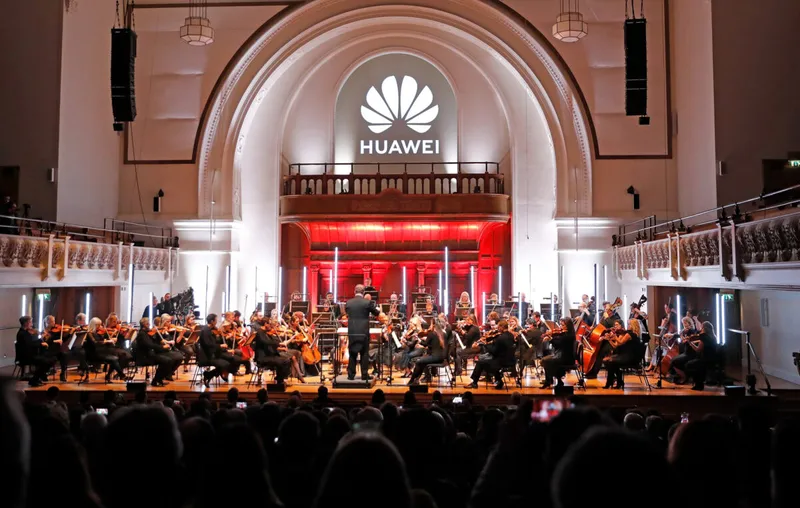You might not think that an artificial intelligence, or AI, capable of making music would signal the end of free will, but others think differently. Particularly those who gathered at Mexico City’s El Cantoral symphony hall in 2019 for the Latin American premiere of Schubert’s Unfinished Symphony, Finished With AI.
I sat between my father and a Chilean movie star as the conductor led the orchestra in a performance of the symphony that I had written... Well, that I had sort of written.
Before he died in 1828, Franz Schubert wrote half of the movements needed for a symphony and then abandoned the work. Over 190 years later, I ‘finished’ the symphony using melodies generated by an AI.
It was simple really. We trained an AI using Schubert’s melodies and gave it the task of generating new melodies that sounded like the training data. Then I wove them together with some original ideas and an orchestra brought the result to life in that Mexican symphony hall.
As the orchestra finished Schubert’s original work and began the music the AI and I had written, I could feel the crowd’s energy shift from astonishment to indignation and fear. They seemed afraid that an AI might be able to make emotional symphonic music.
You can see their point: an AI that makes emotional music could affect the emotional lives of thousands or even millions of people in a small, but profound way; just like a human musician does.
A dangerous precedent
It’s hard to understate the possible impact. If the demagogues of the 20th century have taught us anything, it’s that a person who can manipulate people’s emotions on a massive scale can compel them to commit unspeakable atrocities.
Imagine that power deployed at scale with the mechanical precision of AI, not just manipulating emotions with music.
All that considered, I understood the icy reception. But then something strange happened. The atmosphere in the room slowly changed.
By the Symphony’s finale, the audience’s mood had turned from indignation to wonder. They hung on every cadence and I felt their surprise at every false ending, until they were left breathless as the final chord decayed into silence.
Positive and negative, people reacted very strongly to AI’s symphonic debut. The main reason, I think, is that even though most people don’t believe that AI can create something enjoyable, they, at least partly, did enjoy the Unfinished Symphony.
Enjoyment in music implies that there’s something in the music that the listener connects to, a perception of shared emotion. But, in the case of AI music, an emotion shared with who?
AI, as of yet, has no emotions. So what is the meaning of music made without an emotional composer? The unsatisfying answer is that music has no objective meaning. A composer can decide how a piece of music sounds, but it’s the listener that decides what it means.
Meaning in the age of AI music
Here’s where things get really interesting. The meaning we assign to music depends on its context – how the piece connects to other elements in our lives.
Without context, music is like the results of a game whose rules have been lost: an obviously intentional creation, but with no apparent utility. No matter how it’s created, music doesn’t exist in a vacuum to the listener.
As it continues to evolve, AI music will develop its own context and within that context, it could be as emotional as any style of music.
Certainly, it’ll be different from human-made music. Its rules will be different. It’ll mix existing genres to create new ones; it’ll combine instruments that we wouldn’t think of combining. Some people may even come to prefer it to human-made music.
If you believe that symphonic music made by 18th-century humans has inherent emotional value then keep in mind that you’ve heard Western music for your entire life. The context for this music is part of who you are. It’s part of society. It’s emotional to you because you have the context to appreciate it.
Considering this, it’s strange that I’m now always asked the same question after a performance of the Unfinished Symphony: “Who put the emotion in that music: you, the composer, or the AI?”

Answer: it’s you, the listener, that creates the emotion – it’s the connections you draw from your life to the music.
That’s not the question they really want to ask, though. There’s a deeper question that most people are too afraid to ask right now: “Are my emotions so simple that they can be manipulated by a machine?”
In my experience, this could be possible one day. If a modestly capable music AI in 2019 could stir up indignation, fear and even a little wonder in an audience in Mexico City, maybe AI can have a more potent effect on our emotional lives than we’d like to admit.
And if AI really could manipulate our emotions even slightly, it may be able to do so in ways so subtle that it could cause us to believe that any ideas were our own.
An AI that could manipulate our emotions could rob us of our free will without us realising it. It may even be happening already.
Read more:
